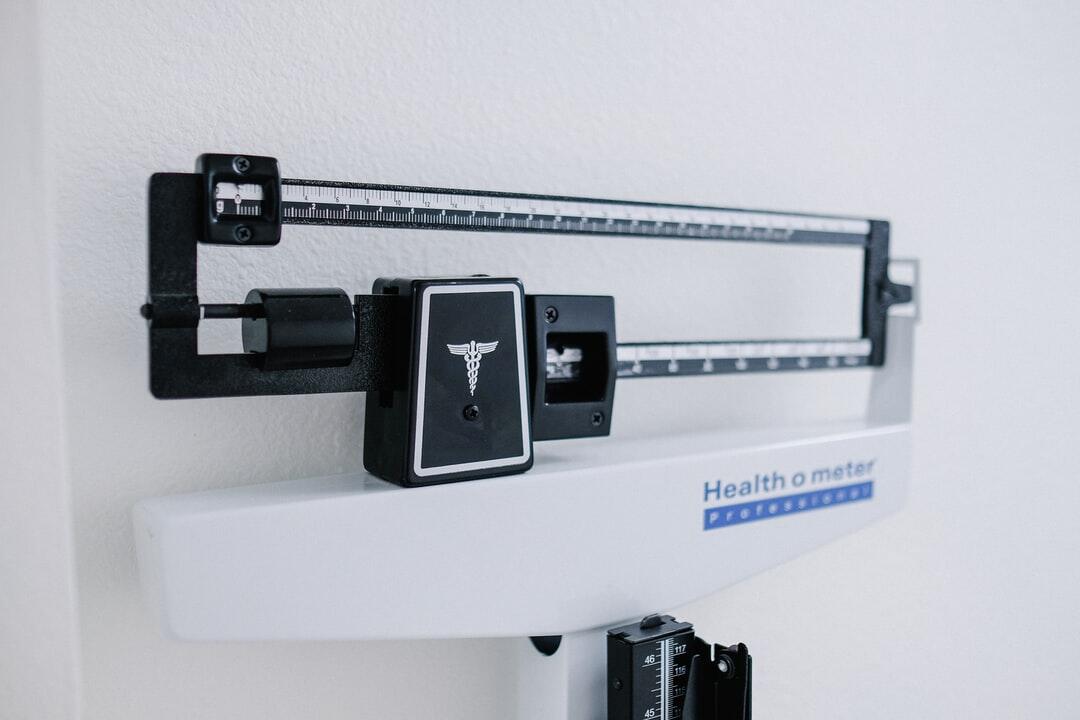An estimated 20 million Americans have some form of thyroid disease, and upwards of 60 percent of them are unaware of their condition. This is unfortunate since there are many effective treatments for different types of thyroid issues.
What are the early warning signs of thyroid problems? Since the thyroid impacts hormones, there can be any number of them. The good news is that there are some common ones to look out for.
Below are 11 initial thyroid warning signs that you should not ignore. Keep reading to find out what those are and how best to address them.
Thyroid: What Is It and What Are Its Functions?
The thyroid is a small, butterfly-shaped gland located at the front of the neck. It straddles the windpipe.
It is about two inches long and has two main parts: two lobes that are connected by the thyroid isthmus. The thyroid is made of follicle cells, or thyrocytes, that store hormones.
The thyroid is an important part of the body’s endocrine system, a network of glands that secrete hormones into the bloodstream. These help control and coordinate various functions in the body. They include:
- Metabolism
- Energy levels
- Growth and development
- Reproduction
- Responses to injuries
- Stress control
- Mood regulation
The thyroid’s job is to release certain hormones that help control metabolism, or how the body transforms food into energy. These hormones include thyroxine (T4), triiodothyronine (T3), reverse triiodothyronine (RT3), and calcitonin.
T4 is the primary hormone the thyroid makes and releases, which converts to T3 once released. The thyroid produces much less T3, but it has a greater effect on metabolism than T4.
The thyroid makes very small amounts of RT3, which reverses the effects of T3. Calcitonin is a hormone that regulates the amount of calcium in the blood.
Common Thyroid Issues
Diagnosis of thyroid issues can involve many phases and techniques, depending on the symptoms and nature of the problem. These include physical examinations, blood tests (to measure hormone levels), imaging tests, and biopsies.
Myriad conditions can impact the thyroid gland. Here are some of the most common ones.
Hypothyroidism
Hypothyroidism is a condition where the thyroid gland does not produce enough hormones. In most cases, the thyroid is functional but, for different reasons, does not secrete the level of hormones necessary to regulate bodily functions.
There can be different causes of hypothyroidism. A common one is Hashimoto’s thyroiditis, which is an autoimmune disorder. Hypothyroidism is often treated with the administration of synthetic thyroid hormones.
Hyperthyroidism
Hyperthyroidism is a condition where the thyroid gland produces too much of one or more hormones. Graves’ disease, an autoimmune disorder, is one of the most common causes of hyperthyroidism.
Hyperthyroidism is usually treated with anti-thyroid medications, radioactive iodine, or surgery. The best option depends on the nature of the disorder and its particular symptoms.
Goiter
Goiter is an enlargement of the thyroid gland. It can occur in both hypothyroidism and hyperthyroidism. Iodine deficiency, along with Hashimoto’s thyroiditis and Graves’ disease, are common causes of goiter.
Goiter treatment also depends on the underlying cause. Common treatments include medication, iodine supplementation, and surgery.
Thyroiditis
Thyroiditis is inflammation of the thyroid gland. It can be acute (short-term) or chronic (persisting for longer periods).
De Quervain’s thyroiditis, which is a painful type of inflammation that usually follows a viral infection, is a common cause of thyroiditis. Postpartum thyroiditis, which occurs following childbirth, is another frequent trigger.
Thyroid Nodules
Thyroid nodules are abnormal growths within the thyroid gland. Most are benign, although some can be cancerous.
Benign thyroid nodules often do not require treatment. They should, however, be monitored.
Thyroid Cancer
Thyroid cancer is less common than other issues on this list, but it can occur. There are different types of thyroid cancers. Almost all of them manifest as a lump in the neck, difficulty swallowing, swollen lymph nodes, or changes in the voice.
Cancerous thyroid nodules usually require surgery. Surgery and treatment with radioactive iodine are among the most effective approaches.
What Are the Early Warning Signs of Thyroid Problems?
The endocrine system is an elaborate network of glands. Many of the glands, including the thyroid, rely on other glands and hormones to send them signals to start working. Also, certain hormones can suppress other hormones.
For instance, the hypothalamus, which is part of the brain, is one of the main parts of the body that stimulates the pituitary gland to produce thyroid-releasing hormones (TRH). These then trigger the thyroid to release T4 and T3. The intricate nature of the endocrine system makes zeroing in on potential thyroid issues.
What are the early warning signs of thyroid problems? Below are 11 thyroid disease indicators that warrant further testing by a medical professional.
1. Fatigue
Since the thyroid plays a major part in regulating the body’s metabolism, fatigue is a common symptom of thyroid problems. Chronic tiredness, even after a full night’s rest, is a primary indicator of hypothyroidism.
2. Weight Changes
The body’s weight has a lot to do with metabolism–how it processes and stores energy. For that reason, sudden unexplained weight gain can be a sign of hypothyroidism. Likewise, abrupt or unexplained weight loss could be an indication of hyperthyroidism.
3. Mood Changes
Irritability and depression can be linked to hypothyroidism. Anxiety and nervousness are commonly associated with hyperthyroidism.
Of course, there can be many underlying causes of these conditions. However, most of them do not show up suddenly, but either persist or worsen over time. A tell-tale sign of thyroid issues is when these conditions arise abruptly and without obvious triggers.
4. Temperature Sensitivity
Metabolism is closely linked to the body’s ability to regulate its own temperature. An overactive metabolism stemming from hyperthyroidism can cause a person to be excessively warm. Likewise, hypothyroidism can be linked to unusual feelings of coldness.
5. Menstrual Changes
Menstrual changes can be related to thyroid disorders. That is because thyroid hormones interact with reproductive ones, including estrogen and progesterone.
Hypothyroidism is often linked to heavier-than-normal menstrual bleeding, irregular menstrual cycles, and longer-than-normal menstrual periods. In rare cases, hypothyroidism can make menstrual periods go away completely.
Hyperthyroidism can also lead to irregular menstrual cycles, as well as lighter and/or shorter periods. It, too, can make menstrual periods go away entirely.
6. Bowel Issues
Metabolism can have major impacts on the digestive system. An imbalance of thyroid hormones can impact the muscles in the gastrointestinal tract. For this reason, both hyperthyroidism and hypothyroidism can cause a variety of gastrointestinal issues.
A slowed metabolism from hypothyroidism can lead to slower digestive processes. This can cause constipation, as well as bloating and abdominal discomfort.
Hyperthyroidism can lead to an over-active digestive system, causing diarrhea or looser stools. It also can trigger more frequent bowel movements.
7. Muscle or Joint Pin
Thyroid problems can also cause various types of musculoskeletal issues. Hypothyroidism can trigger muscle pain, stiffness, and cramps.
It can also cause joint pain from swelling or stiffness. Often, these symptoms are similar to those of arthritis. Swelling in the joints can also compress nerves and lead to numbness, tingling, and carpal tunnel syndrome.
Hyperthyroidism also can impact muscles and joints. It can lead to muscle weakness, often experienced in the thighs and upper arms. It can also cause joint pain and inflammation.
8. Swelling in the Neck
Swelling in the neck is another common sign of thyroid issues. Goiter and thyroiditis are common culprits, which have different causes (see above). Neck swelling also can be due to thyroid nodules or cancers.
9. Cognitive Impairement
A lesser-known symptom of thyroid issues is cognitive impairment. Thyroid hormone level imbalances can disrupt neurotransmitter functions, which are critical to cognitive health.
Hypothyroidism can slow down metabolic processes throughout the body, including brain function. This can manifest as memory problems, difficulty concentrating, depression, and brain fatigue.
Hyperthyroidism can speed up brain function. This can lead to anxiety, restlessness, agitation, difficulty concentrating, memory problems, and insomnia.
10. Hair and Skin Issues
Thyroid hormone imbalances can cause different hair and skin issues. For instance, dry, brittle hair and dry skin are two signs of hypothyroidism, as is hair loss. Thinning skin and fine hair strands can be signs of hyperthyroidism.
11. Heart Rate Changes
Hormone imbalance can impact the cardiovascular system as well. Elevated heart rate is a common sign of hyperthyroidism, as are heart palpitations or other forms of irregular heartbeat. While more common in older individuals, elevated heart rate can increase the risk of stroke and heart-related complications.
A slowed heart rate can be a symptom of hypothyroidism. Long-term, this can contribute to increased levels of cholesterol and cardiovascular disease. Hypothyroidism also can impact the strength of the heart’s contractions, leading to a weak pulse.
Learn More About Early Thyroid Symptoms
Now that you have an answer to “What are the early warning signs of thyroid problems?” you can seek diagnosis and treatment options. Early detection is one of the most important steps to identify thyroid issues and find appropriate solutions.
Evolve is the nation’s leader in bioidentical hormone replacement and peptide therapies. Our team of medical professionals helps patients experience happier, healthier, and more productive lives. Reach out to us today to schedule a consultation to discuss signs of thyroid trouble.










